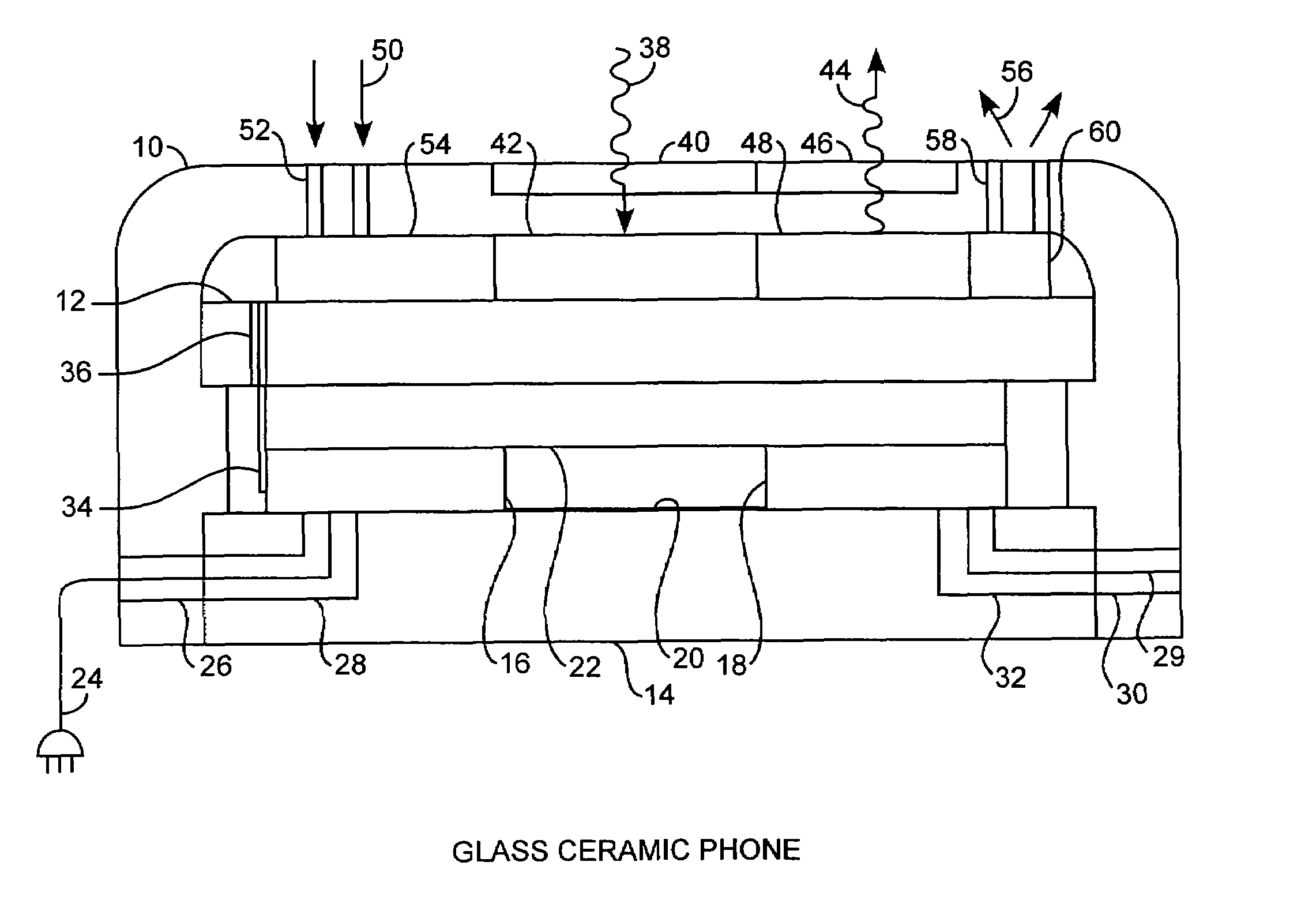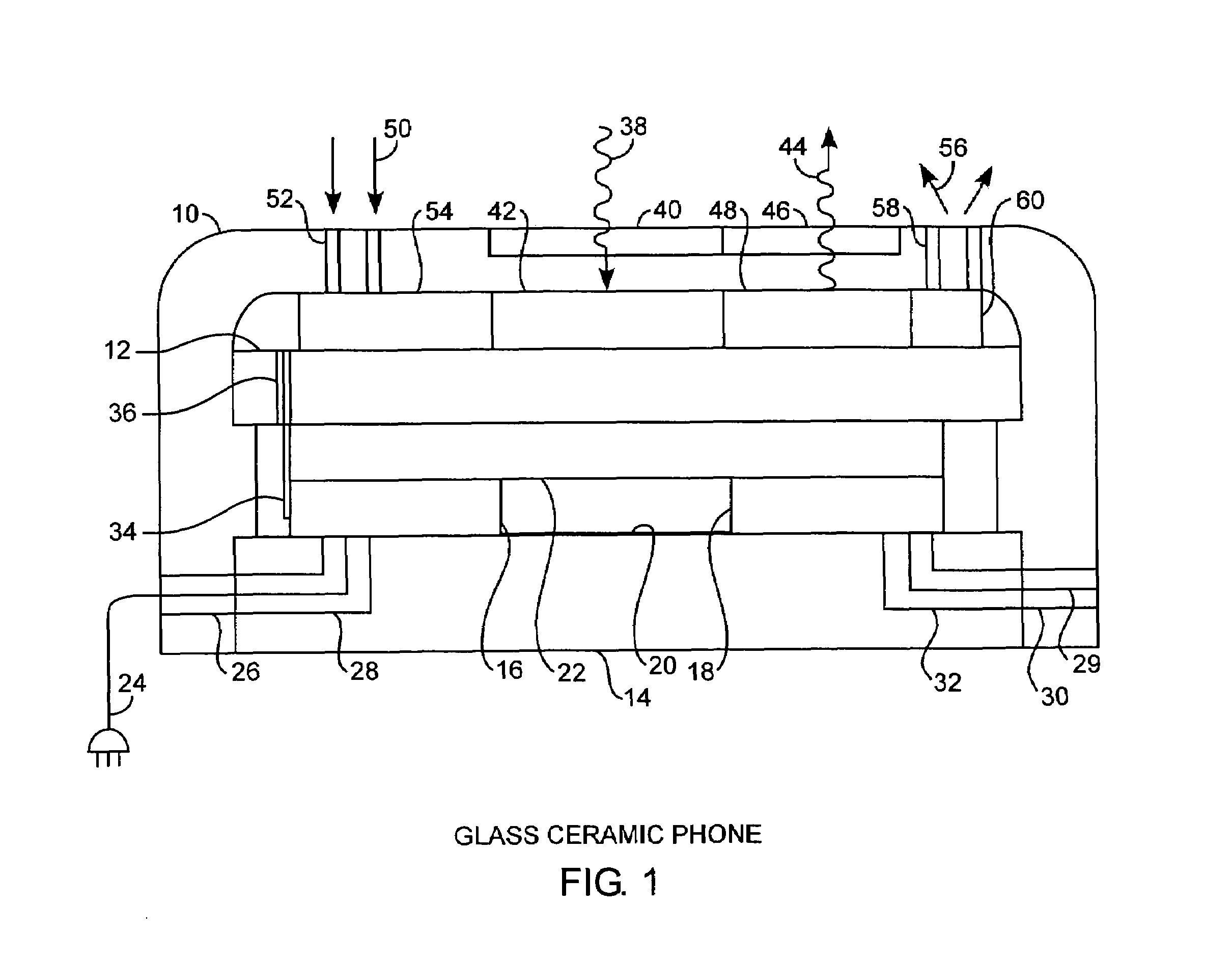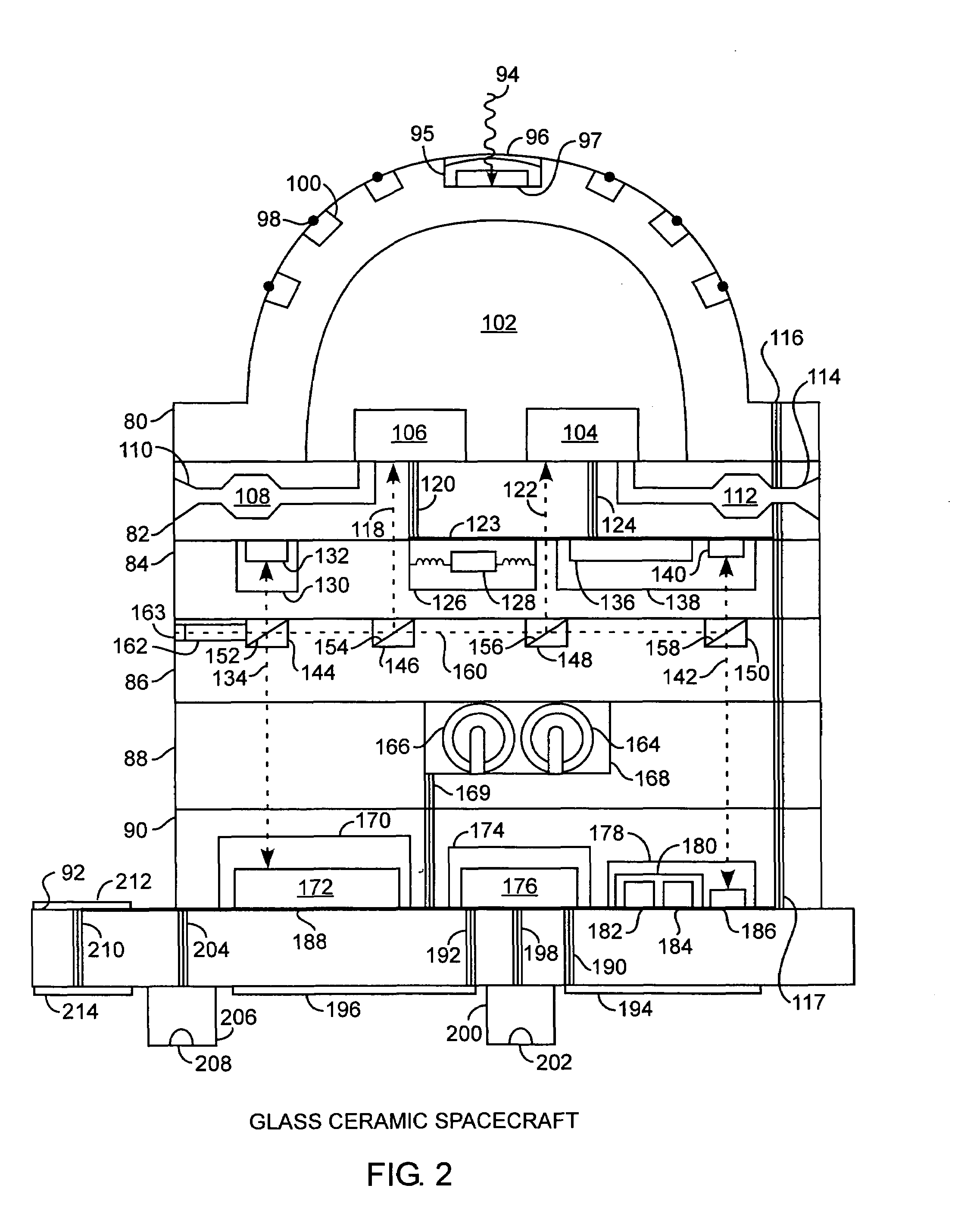Integrated glass ceramic systems
a technology of glass and ceramics, applied in the field of integrated glass and ceramic systems, can solve the problems of limited system integration of various technologies, inability to significantly modify bulk mechanical, thermal and optical properties, and increase brittleness, so as to enhance internal optical communication, enhance dielectric properties, and increase strength
- Summary
- Abstract
- Description
- Claims
- Application Information
AI Technical Summary
Benefits of technology
Problems solved by technology
Method used
Image
Examples
Embodiment Construction
[0027]An embodiment of the invention is described with reference to the figures using reference designations as shown in the figures, Referring to FIG. 1, a glass ceramic phone, such as a cellular phone, can be adapted to include a variety of glass ceramic components in an all glass ceramic system. As used herein, a glass ceramic material is a material comprising glass or ceramic components, or both. A molded glass ceramic cover 10, a laser milled glass ceramic strut 12, and a laser milled glass ceramic base 14 form the structural components of the phone and collectively provide internal cavities for supporting encapsulated internal components. Internal to these structural components is a power converter 16 and a communications processor 18 connected together by horizontal interconnects 20. A thin film battery 22 is charged through an external power adapter 24 adapted for interface connection through a power cover feedthrough and a power base feedthrough 28 for connecting the power ...
PUM
| Property | Measurement | Unit |
|---|---|---|
| wavelengths | aaaaa | aaaaa |
| near infrared transparency | aaaaa | aaaaa |
| temperature | aaaaa | aaaaa |
Abstract
Description
Claims
Application Information
 Login to View More
Login to View More - R&D
- Intellectual Property
- Life Sciences
- Materials
- Tech Scout
- Unparalleled Data Quality
- Higher Quality Content
- 60% Fewer Hallucinations
Browse by: Latest US Patents, China's latest patents, Technical Efficacy Thesaurus, Application Domain, Technology Topic, Popular Technical Reports.
© 2025 PatSnap. All rights reserved.Legal|Privacy policy|Modern Slavery Act Transparency Statement|Sitemap|About US| Contact US: help@patsnap.com



